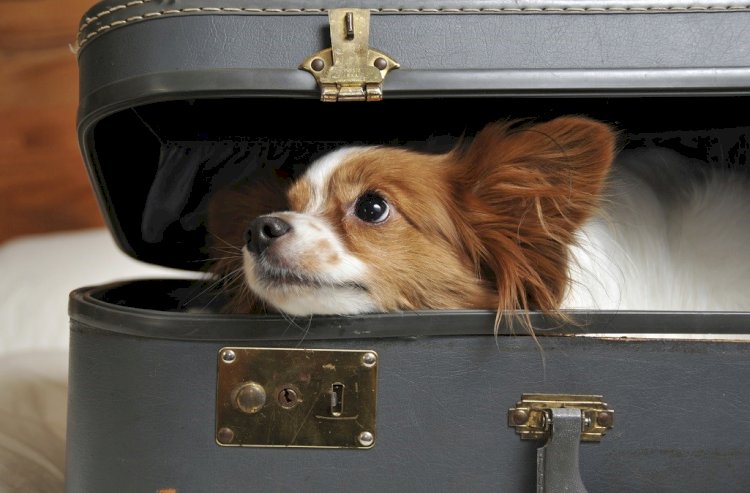Dog Separation Anxiety
In this article you can learn how to deal with a dogs separation anxiety.

You're preparing to leave your house. You head for the door and pick up your keys along the way. The moment your keys give a little jingle, your dog is at your side, barking incessantly (with some howling thrown in for good measure). It almost seems like he knows you're leaving and he's trying to block your path to the door.
Separation anxiety is one of the most common canine behavioral problems. It is estimated that about 15 percent of dogs in the United States suffer from this problem. A dog with separation anxiety will become extremely distressed when he realizes that you are about to leave home. Once you're gone, he may howl, bark, urinate, defecate, or otherwise wreak havoc throughout the house. If your dog is misbehaving, either when you're getting ready to leave, after you leave, or at both times, consider the possibility that he may have separation anxiety. As tempting as it might be to get upset with your dog, you should take a moment to consider what the underlying causes might be.
First of all, your dog may be afraid that when you leave you will not return. If your dog was previously abandoned, he will be especially susceptible to this fear. Another cause might simply be confusion. If you spent a few weeks at home with your new dog or were home for summer vacation, for example, your dog will have gotten used to spending time with you. If you return to work or are away for any reason for an extended length of time, your dog will be confused by this unexpected alone time and will perhaps think you're not coming back. In both of these situations, it may take a while for him to learn that you haven't permanently left him.
So how can you help a dog that is suffering from separation anxiety? Try to work on gradually desensitizing your dog to being left alone. First, discourage him from following you around the house when you are home by giving him something to occupy his time, like chewing on a Nylabone. You can also periodically jingle your keys or jiggle the doorknob without actually leaving the house so your pup stops associating these actions with being left alone. When it's time to leave the house, don't make a big deal about it, but simply walk out the door without looking at him. It may also help to leave the television or radio playing while you're gone so the house is not completely quiet.
Remember that dogs need companionship. They covet quality time with their owners and would love nothing more than to spend every waking minute with you. Even if this is not a possibility, you should make an effort to spend at least one or two hours a day with your pup, playing, walking, training, or simply cuddling. If you know that you will not have enough spare time in the day to give your dog the attention that he needs, you may want to consider enrolling him in a doggie daycare program or hiring a dog walker to visit with him and get him some exercise when you can't be there.
In the wild, dogs live in packs. They use barking and howling as means of getting the pack together. If your dog is barking and howling, he is probably lonely and trying to call in some companionship. Another way to help a dog that is suffering from separation anxiety is to try adding another dog to your household. A furry friend can help to calm and soothe your dog during moments of anxiety.
An additional way to help rid your pup of separation anxiety or to keep him from developing this problem in the first place is to teach him some basic obedience commands. When your dog has gained some skills, he will be more confident and will naturally lose some of his anxiety.
If you feel like you've tried everything and your dog is still exhibiting significant problem behaviors, you may need to seek the help of a professional. They can work on behavior modification with your pet and prescribe medication if necessary. Leaving your dog home alone should not be a traumatic experience for you or your pet. Don't be afraid to seek professional help to assist your dog in overcoming this problem.
SOURCES
[1] "Nylabone"
[2] "Positively"
[3] "Pet Place"
[4] "Pet Education"
[5] "Green Acres"
[6] "The Kennel Club"
[7] "Dog Conspiracy"






















